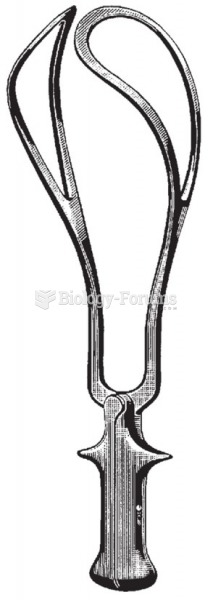|
|
|
The Romans did not use numerals to indicate fractions but instead used words to indicate parts of a whole.
To maintain good kidney function, you should drink at least 3 quarts of water daily. Water dilutes urine and helps prevent concentrations of salts and minerals that can lead to kidney stone formation. Chronic dehydration is a major contributor to the development of kidney stones.
The first oncogene was discovered in 1970 and was termed SRC (pronounced "SARK").
Cyanide works by making the human body unable to use oxygen.
The liver is the only organ that has the ability to regenerate itself after certain types of damage. As much as 25% of the liver can be removed, and it will still regenerate back to its original shape and size. However, the liver cannot regenerate after severe damage caused by alcohol.







